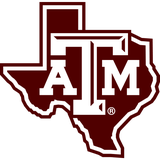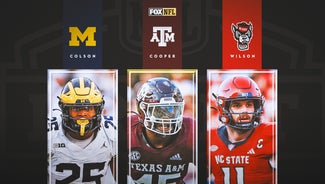
How a 28-year-old former drug addict became an NFL hopeful
Alton Voss was a quarterback at the University of South Florida, a three-star recruit from nearby Gulf High School. Redshirting as a freshman, he didn’t like the separation of scout team and starters. He attended lifts and study halls, but never really felt present. “It was my first obstacle as an adult and I didn’t know how to handle it, so I went through the motions,” Voss says. “I was 19. I had tunnel vision.” That was 2007.
Voss drank, then drank heavily. Weekend partying began on Thursdays, then moved up to Wednesdays. By spring ball, he had incorporated Oxycodone to his repertoire. That summer, he moved home to New Port Richie, Fla., commuting 45 minutes for practices, driving home each night to get high. And then he woke up one morning and decided he wanted to be a regular college student. He asked his coach for a meeting. “In 20 minutes,” he says, “I gave up a full ride.”
Voss then plunged into a harrowing spiral. A decade later he has resurfaced, miraculously, as an NFL prospect. In The College Column, we have mostly covered top prospects from powerhouse programs. But each year leading up to the draft, there are dozens of men that share the same dreams, with less linear paths. Few paths veer as dramatically as Alton Voss’.
After leaving USF, Voss concocted a fake back injury. It was good enough for a pain management clinic, which provided 40 mg of Oxycodone and 30 mg of Roxicodone every 28 days. He tried returning to football twice. He enrolled at College of the Sequoias in California (that lasted a week) then Fort Scott Community College in Kansas (that lasted three weeks). At Fort Scott, Voss brought Methadone—just enough so that he wouldn’t get dope sick. Suffering from withdrawal, physically, he could not rebound. He overslept and missed meetings. The coach finally said, “I like you, but I need to let you go.”
“I was probably slipping into a depression,” Voss says. “Some days I just wanted to get high and escape my reality. Other times I wanted to get back on track, I just couldn’t.”
Once, Voss wrapped string around his arm and shot crack in a Wal-Mart parking lot. In 2011, he almost overdosed. He quit pills, quit crack and decided he would only smoke marijuana. He enrolled at a community college in Florida. A few months later, he had a manic episode. In the middle of class, Voss had a premonition he was going to win the lottery. He went to a gas station and bought six scratch-off tickets—and won each time. Reasonably hyped, he called a friend in Michigan to gush about his fortune.
The friend hung up, then called right back: “It doesn’t sound like you’re doing so great, maybe you should come up here to get away for a few days.” And so Voss, who had $1,800 from selling his pills, bought a one-way ticket to Michigan. He still wasn’t well. Upon arriving in Holland, Mich. he went for a jog. Here’s how he described what happened:
“I know it sounds crazy. I had this current, that guided me. There was a man who got out of the car, and the current told me to go in that car.”
So Voss stole a car. He drove it to a cemetery. Police lights flashed. Voss, who had gotten out of the car, broke down. He was arrested, and briefly admitted to the mental health ward at Hackley Hospital in Muskegon, Mich. When he returned to jail, he was assigned a public defender, Jane Patterson. She worked a deal to reduce charges from a felony to a misdemeanor, but among the judge’s orders: Voss needed to be on the first flight back home to Florida.
Voss reached out to Patterson to stay in touch. They exchanged emails, then texts, then long phone calls. “I know this place,” she said one day in June 2011. “Where I think you can get better.” That’s how Voss ended up in Argentina. He spent two years at a rehabilitation facility, CMI Abasto in Buenos Aires: one year in-patient, the other out-patient. He became clean, then healthy.

“When I first was down in Argentina, football was the last thing I was thinking about,” he says. “But as I started to think about my goals, football became important to me again. I wanted to finish my journey.” There were people at the rehab facility in Argentina from the Western Michigan area, including a family member of a Grand Valley State booster.
“That’s how I found myself at a Panera with Jane Patterson and a booster detailing me about Alton’s case,” says Matt Mitchell, GVS’s head coach. “Obviously I had some hesitations. We were taking him right from rehab back into the fire. This is a campus of more than 25,000 students.”
Mitchell gave Voss a shot. They gathered his transcripts from across the country and in 2013, Voss walked-on as a 23-year-old freshman. He began as a tight end. “I wasn’t great at pass-blocking or run-blocking,” Voss admits. But he got after it on special teams. Impressed by his effort, coaches switched him to defensive end (where he was older than his position coach). Coaches monitored Voss closely; they saw nothing but a leader. He was good with teammates, and he passed every NCAA-issued drug test. Over the past two seasons, he accumulated 7.5 sacks, 20.5 tackles for loss and forced five fumbles. His 6' 3", 240-pound frame and non-stop motor caught the eyes of scouts. Many NFL teams noticed Voss on film while scouting GVSU teammate Matt Judon (a 2016 fifth-round pick of the Ravens).
“Some teams have told me, ‘I’m sorry, I can’t bring a 28-year-old former drug addict to my player personnel guys in good conscience,’” Mitchell says. “Other teams are intrigued.”
Mitchell’s pitch to NFL evaluators: Voss may be 28, but there’s not a lot of tread on his tires. He wasn’t playing football for five years and he stayed injury-free over four years at GVS. And the coach can’t say enough about his influence on teammates.
Four years clean, Voss has entered the public speaking circuit. He speaks with the same confidence and cogency that he shared on the phone last week as he recounted his story. At best, Voss will be a priority free agent who needs to earn a roster spot at training camp, likely on special teams. “Even if that doesn’t happen,” Mitchell says. “He should take tremendous pride in the fact he even got to this point.”
Question or comment? Email us at talkback@themmqb.com.
This article originally appeared on







































































































































